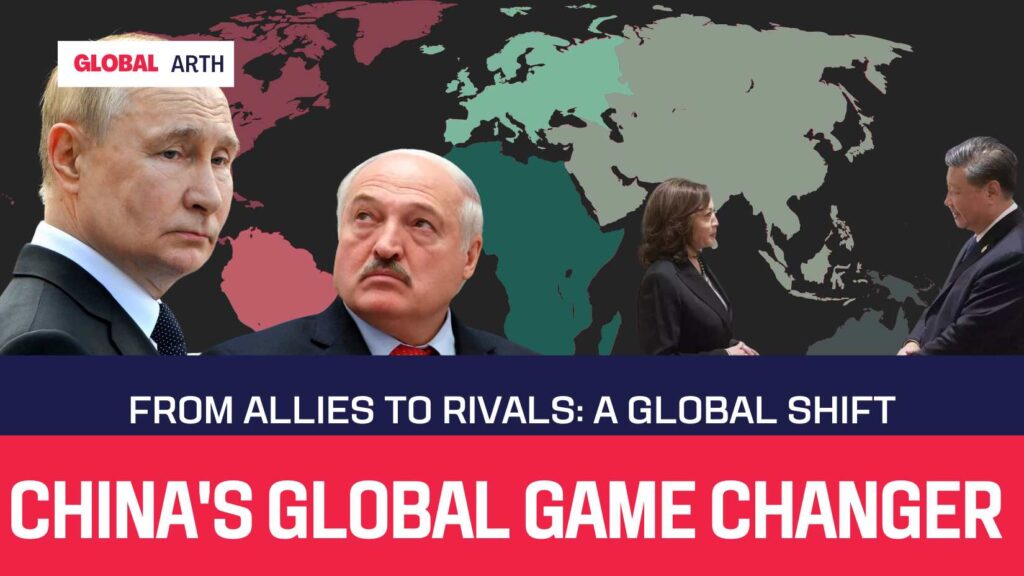China’s geopolitical strategy has sent shockwaves through the international community, leaving nations and leaders reeling from its bold maneuvers. As global power dynamics shift, China’s actions have drawn scrutiny, with the United States, Russia, and Poland all playing pivotal roles in this unfolding drama.
The Belarus Conundrum
Belarus, a steadfast ally of Russia, has found itself at the center of a geopolitical storm. Its President, Alexander Lukashenko, has stood firmly with Russia, but tensions have escalated as Poland closed its borders to illegal migration. The Polish government has described these refugees in derogatory terms, emphasizing their stance on prioritizing human rights over economic interests. This move has effectively sealed Poland’s border with Belarus, causing a significant rift.
China’s Strategic Shift
In an unexpected turn, China’s geopolitical strategy now involves aligning against Belarus, leading to questions about its motivations. Historically a key market for Belarusian products, China has abruptly halted imports, citing a shift towards a “self-reliant China.” This move has sent shockwaves through Russia and the international community, raising questions about China’s strategic alliances and long-term goals.
Geopolitical Implications
China’s geopolitical strategy has sparked debates about its relationship with the United States. Speculation arises about whether these moves are influenced by strategic agreements with American political figures like Kamala Harris. The geopolitical landscape is evolving, with the enemy of an enemy no longer a guaranteed friend. China’s actions suggest a survival mode, prioritizing its interests in the face of global challenges.
Poland’s Strategic Position
Poland’s decision to close its borders to Belarusian refugees has drawn attention to the RE Condor railway line, which connects China to the UK. Poland has threatened to block goods from China if Belarus does not cease sending refugees, highlighting the complex web of global trade and alliances.
The Self-Reliant China Strategy
China’s geopolitical strategy includes a focus on becoming a self-reliant nation, leading to significant changes in its import policies. By banning certain food items, China aims to reduce its dependence on foreign goods. This shift in policy, valued at billions of dollars, is reshaping the global trade landscape and signaling China’s intention to prioritize domestic growth.
Global Reactions
The international community is grappling with China’s unexpected stance against Russia’s ally. This move has left many questioning China’s motivations and future strategies. China’s geopolitical strategy is rapidly evolving, with alliances and rivalries shifting in unprecedented ways.
The Central Asian Equation
India, under the leadership of Prime Minister Narendra Modi, is strategically focusing on Central Asia. With abundant natural resources, this region is becoming a focal point for global powers. China’s unpredictable alliances and actions have created an environment of uncertainty, challenging traditional geopolitical norms.
Conclusion
As China navigates the complexities of global politics, its geopolitical strategy is reshaping alliances and power structures. The world watches closely as China redefines its role on the international stage, challenging the notion of permanent friendships and alliances. The future remains uncertain, with geopolitical dynamics continually evolving in this ever-changing landscape.

